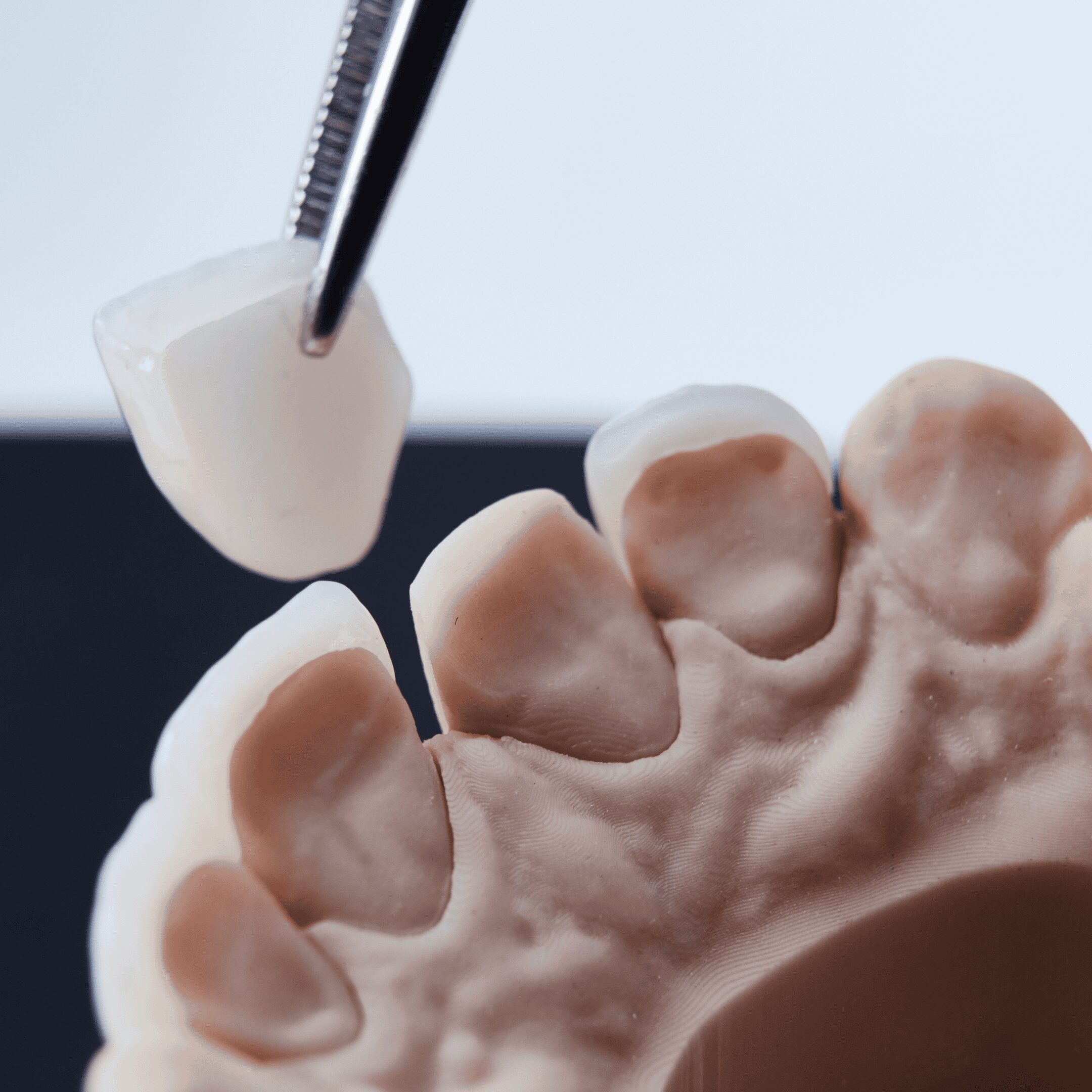Wprowadzenie
Licówki to jedno z najczęściej wybieranych rozwiązań w stomatologii estetycznej. Umożliwiają poprawę kształtu, koloru oraz proporcji zębów bez konieczności rozległych ingerencji protetycznych. Wybór pomiędzy licówkami porcelanowymi a kompozytowymi powinien być świadomy i oparty na analizie nie tylko efektu estetycznego, ale również trwałości, biokompatybilności i komfortu użytkowania.
W Unident Union pomagamy pacjentom podjąć decyzję opartą na ich indywidualnych potrzebach i oczekiwaniach estetycznych, funkcjonalnych oraz budżetowych.
Licówki porcelanowe – charakterystyka
Licówki porcelanowe wykonywane są z wysokiej klasy ceramiki dentystycznej i projektowane indywidualnie dla każdego pacjenta. Ich największą zaletą jest doskonałe odwzorowanie właściwości optycznych naturalnego szkliwa, co przekłada się na wyjątkową estetykę.
Cechy:
- Trwałość: 10–20 lat
- Odporność na przebarwienia: bardzo wysoka
- Estetyka: wysoki połysk, efekt translucencji
- Biokompatybilność: doskonała integracja z tkankami przyzębia
- Ścieralność: minimalna
- Cena: wyższy koszt wykonania (kompensowany trwałością)
Licówki porcelanowe są najczęściej wybierane przez pacjentów oczekujących najwyższej estetyki i przewidywalności efektu na długie lata.
Licówki kompozytowe – charakterystyka
Licówki kompozytowe powstają z materiału, który stosuje się również w wypełnieniach estetycznych. Mogą być wykonywane bezpośrednio w jamie ustnej lub pośrednio w laboratorium.
Cechy:
- Trwałość: 2–5 lat (przy dobrej higienie)
- Odporność na przebarwienia: umiarkowana
- Estetyka: dobra, lecz mniej naturalna niż w przypadku ceramiki
- Biokompatybilność: dobra
- Ścieralność: wyższa niż porcelana
- Cena: niższy koszt wykonania
To rozwiązanie może być odpowiednie dla pacjentów oczekujących szybkiej poprawy estetyki, np. przed ważnym wydarzeniem, ale bez konieczności długoterminowego efektu.
Porównanie licówek – tabela różnic
| Kryterium | Porcelanowe | Kompozytowe |
|---|---|---|
| Trwałość | 10–20 lat | 2–5 lat |
| Estetyka | Bardzo wysoka | Umiarkowana |
| Odporność na przebarwienia | Bardzo wysoka | Ograniczona |
| Wytrzymałość mechaniczna | Wysoka | Umiarkowana |
| Ścieralność | Minimalna | Wyższa |
| Koszt | Wyższy | Niższy |
| Czas wykonania | 2–3 wizyty | 1–2 wizyty |
| Możliwość korekty po czasie | Ograniczona | Łatwa korekta |
| Przeznaczenie | Długoterminowe | Krótkoterminowe lub tymczasowe |
Kiedy wybrać licówki porcelanowe?
- Oczekujesz trwałości i wysokiej odporności na przebarwienia
- Zależy Ci na jak najbliższym odwzorowaniu naturalnych zębów
- Licówki mają być rozwiązaniem na długie lata
- Chcesz mieć pełną kontrolę nad estetyką – kształtem, kolorem, długością zębów
Kiedy wybrać licówki kompozytowe?
- Potrzebujesz szybkiej poprawy estetyki
- Masz ograniczony budżet
- Licówki mają pełnić funkcję tymczasową
- Nie masz głębokich zmian w strukturze szkliwa lub zgryzie
W Unident Union – decyzja poprzedzona analizą
W naszej klinice wybór rodzaju licówek nie jest przypadkowy. Każde leczenie poprzedza szczegółowa analiza estetyczna i funkcjonalna, a także rozmowa na temat oczekiwań pacjenta.
Dzięki przymiarkom (mock-up/wax-up), cyfrowym skanom i pracy z renomowanymi laboratoriami, pacjent może zobaczyć realny efekt jeszcze przed rozpoczęciem leczenia.
